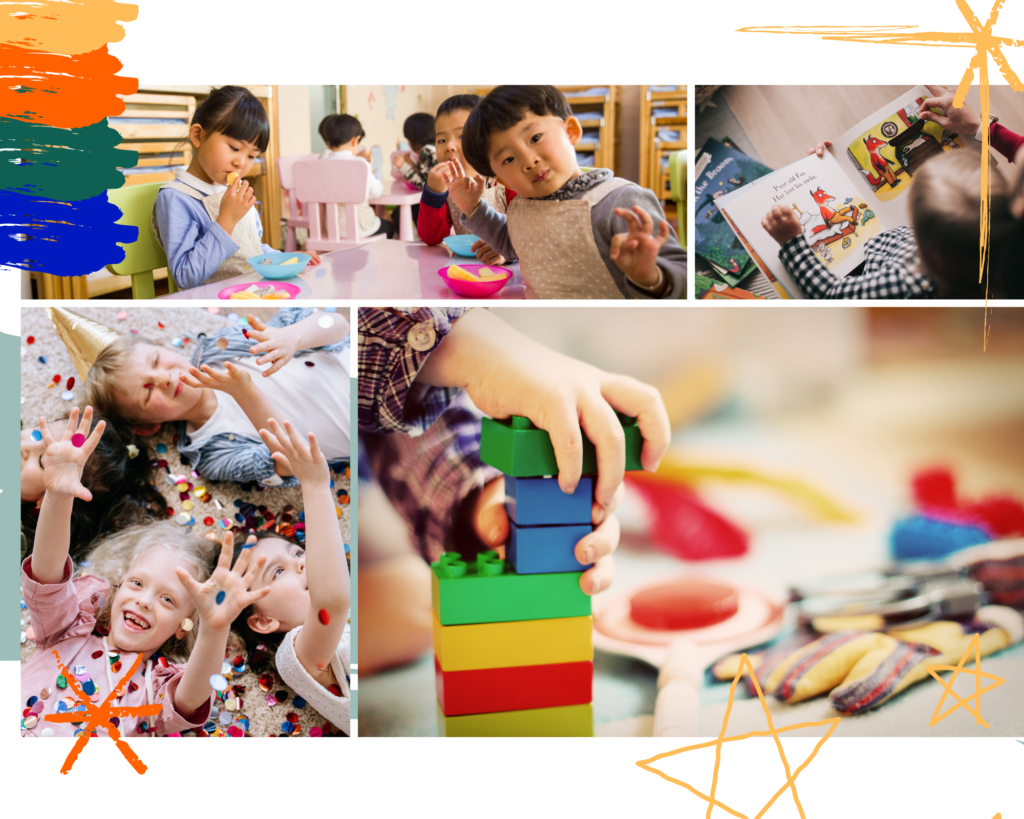Know all about your children preschool education
Nurseries play a pivotal role in shaping the foundation of a child’s education and development. These vibrant spaces go beyond being just childcare centers; they provide a nurturing environment where children embark on their journey of learning and exploration. In this article, we will delve into the world of nurseries or preschool’s, understanding their significance, benefits, and the factors to consider when choosing the right one for your child.
Table of Contents
- Introduction
- The Evolution of Nurseries
- The Benefits of preschool Education
- Holistic Development
- Socialization Skills
- Structured Learning
- Essential Aspects to Consider When Choosing a preschool
- Qualified and Caring Staff
- Safety and Hygiene Standards
- Stimulating Learning Environment
- Choosing the Perfect preschool
- Location and Convenience
- Curriculum and Approach
- Preparing Your Child for Nursery
- Open Communication
- Familiarization Visits
- The Role of Parents in this Education
- Supporting Learning at Home
- Building a Strong Partnership
- Nursery vs. Preschool: Decoding the Difference
- The Future of Nursery Education
- Integration of Technology
- Focus on Individualized Learning
- Conclusion
Introduction
Nurseries, often known as preschools or kindergartens, are dynamic educational institutions that cater to the educational, social, and emotional needs of young children. These early learning centers offer an array of activities and experiences that lay the groundwork for a child’s lifelong journey of learning.
The Evolution of Nurseries
Over the years, nurseries have evolved from mere babysitting services to centers of excellence in early childhood education. From a focus on play-based learning to incorporating structured curriculum, nurseries have adapted their methodologies to align with the changing educational landscape.
The Benefits of Nursery Education

Holistic Development
Nurseries provide a holistic approach to learning, focusing on cognitive, physical, emotional, and social development. Children engage in activities that stimulate their creativity, critical thinking, and problem-solving skills.
Socialization Skills
Interacting with peers in a nursery setting fosters the development of crucial socialization skills. Children learn to share, communicate, and collaborate, setting the stage for their future interactions.
Structured Learning
Nurseries introduce children to structured routines, helping them understand the importance of schedules and time management. This foundation proves invaluable as they transition to formal schooling.
Essential Aspects to Consider When Choosing
Qualified and Caring Staff
The heart of any nursery is its staff. Look for qualified educators who exhibit a genuine love for nurturing young minds. Their expertise and warmth create a conducive learning environment.
Safety and Hygiene Standards
Safety is paramount in nurseries. Adequate safety measures and hygiene practices ensure that your child is in a secure and healthy environment.
Stimulating Learning Environment
A well-designed nursery space is filled with age-appropriate learning materials, books, and creative resources. This environment sparks curiosity and encourages exploration.
Choosing the Perfect preschool
Location and Convenience
Proximity to your home or workplace can significantly ease the daily routine. Choose a nursery that is conveniently located, saving time and effort during drop-offs and pickups.
Curriculum and Approach
Every nursery follows a distinct curriculum and teaching approach. Research and choose a nursery that aligns with your values and educational preferences for your child.
Preparing Your Child for preschool
Open Communication
Before starting nursery, establish open communication with the educators. Share your child’s interests, needs, and any concerns you might have. This collaboration sets the stage for a smooth transition.
Familiarization Visits
Arrange visits to the nursery before the official start date. Familiarizing your child with the environment and caregivers can help alleviate anxiety and make the first day more comfortable.
The Role of Parents in preschool Education
Supporting Learning at Home
Extend the learning from the nursery to your home. Engage in activities that reinforce what your child learns in the classroom, creating a consistent learning experience.
Building a Strong Partnership
Maintain an open line of communication with the nursery staff. Regular updates and feedback sessions help build a strong partnership focused on your child’s development.
Nursery vs. Preschool: Decoding the Difference
While the terms “nursery” and “preschool” are often used interchangeably, they can have subtle differences based on geographic location and educational philosophies.
The Future of Nursery Education
Integration of Technology
As technology continues to shape education, nurseries are embracing it as a tool for enhanced learning. Interactive apps and digital resources add a new dimension to early education.
Focus on Individualized Learning
Nurseries are recognizing the uniqueness of each child’s learning journey. Tailoring teaching methods to suit individual strengths and areas of growth is becoming a cornerstone of nursery education.
Conclusion
Nurseries serve as the stepping stones in a child’s educational voyage. These vibrant spaces lay the foundation for a lifelong love of learning, fostering holistic development and socialization skills. As parents, choosing the right nursery and actively participating in your child’s nursery experience contribute to a well-rounded educational journey.
FAQs
What age group does preschool education typically cater to?
preschool education is typically aimed at children between the ages of 2 to 4.
Do nurseries follow a specific curriculum?
Different nurseries follow different curricula. It’s important to choose one that aligns with your educational preferences.
How can I prepare my child for the first day of preschool?
You can prepare your child by discussing the preschool routine positively and arranging familiarization visits.
What role do parents play in preschool education?
Parents play a crucial role in supporting learning at home and maintaining open communication with nursery staff.
How does preschool education impact future academic success?
Nursery education sets the stage for future learning by developing foundational skills and a love for learning.

